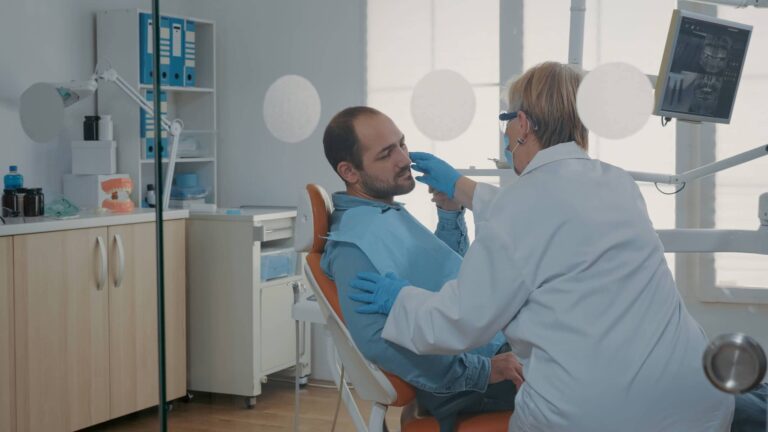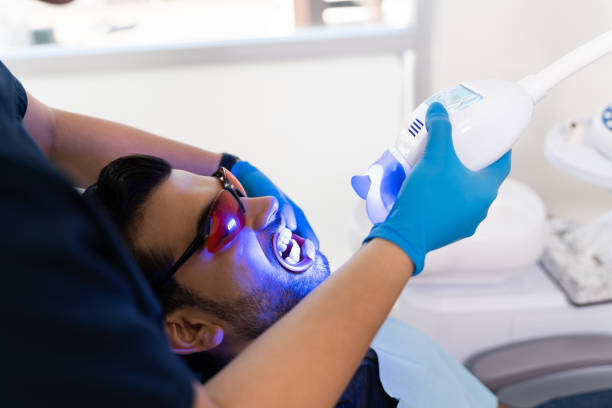Dental emergencies can happen unexpectedly, causing pain, discomfort, or even the risk of permanent damage. When such issues arise, it’s important to know how to access an NHS emergency dentist in Aberdeen to get prompt treatment. This article will guide you through what qualifies as a dental emergency, how to find an NHS Emergency Dentist Aberdeen, and what you can expect during your visit.
What is a Dental Emergency?
A dental emergency is a situation that requires immediate care to prevent further harm or relieve pain. Some common dental emergencies include:
- Severe toothache: Pain that is persistent and unbearable, often indicating an infection or tooth decay.
- Broken or chipped tooth: Accidental damage to a tooth that may require immediate treatment to avoid further complications.
- Knocked-out tooth: When a tooth is dislodged due to an injury, it’s crucial to act fast to save the tooth.
- Abscess or infection: Swelling, pain, or pus around a tooth or in the gums, which may point to an infection that needs urgent attention.
- Bleeding gums or mouth injuries: Uncontrolled bleeding that doesn’t stop can be a sign of a serious problem.
If you experience any of these issues, it’s important to seek emergency dental care as soon as possible.
How to Find an NHS Emergency Dentist in Aberdeen
If you need emergency dental treatment in Aberdeen, the NHS provides various options to ensure you get the care you need quickly. Here are the steps to take when you require an NHS emergency dentist:
Step 1: Contact Your Regular Dentist
The first step is to contact your usual NHS dentist. Many NHS dental practices offer emergency appointments for registered patients. Even if they are fully booked, they will usually prioritise urgent cases. Let them know about your situation, and they will do their best to accommodate you.
Step 2: Call NHS 24
If you do not have a regular dentist, or if your dentist is closed, you can call the NHS 24 helpline by dialling 111. This service is available 24 hours a day and will guide you on what to do next. They may refer you to an emergency dentist in Aberdeen or provide advice on managing your symptoms while you wait for treatment.
Step 3: Visit an NHS Dental Clinic
Some dental clinics in Aberdeen offer emergency services even if you are not a registered patient. These clinics may accept walk-in patients for urgent care. However, it’s recommended to call ahead to confirm availability before visiting.
Step 4: Visit a Hospital A&E Department
In extreme cases where you experience a dental emergency alongside symptoms such as severe swelling, difficulty breathing, or fever, it may be necessary to visit the Accident & Emergency (A&E) department at your local hospital. They can provide urgent care if your dental issue is affecting your overall health.
What to Expect During an Emergency Dental Appointment
When you arrive for your emergency dental appointment, the dentist will focus on providing immediate relief and preventing further damage. Here’s what you can typically expect during your visit:
Assessment and Diagnosis
The first step is a thorough examination of the affected area. The dentist will assess your teeth, gums, and mouth to determine the cause of the problem. X-rays may be taken if necessary to get a clearer view of any underlying issues.
Pain Relief
If you are experiencing severe pain, the dentist’s first priority will be to provide relief. This could involve numbing the area with a local anaesthetic, applying a temporary dressing, or prescribing pain medication.
Treatment Options
Once the cause of the dental emergency is identified, the dentist will explain the necessary treatment. Depending on the issue, this may involve:
- Filling: If your tooth is broken or decayed, the dentist may place a filling to restore its shape and function.
- Extraction: In some cases, a damaged or infected tooth may need to be removed.
- Root Canal: If the infection has reached the tooth’s pulp, a root canal may be necessary to save the tooth.
- Temporary Measures: For more complex issues, the dentist may provide temporary solutions until a more permanent treatment can be scheduled.
Follow-Up Appointments
For certain emergencies, a follow-up appointment may be required to complete the treatment. For example, if you need a permanent filling or crown, the dentist will schedule another visit to finish the procedure.
NHS Emergency Dental Costs
NHS emergency dental treatment is affordable compared to private care, and the cost is based on a fixed fee system. In most cases, emergency dental care will fall under Band 1 charges, which cover emergency assessments and basic treatment. The Band 1 charge is a set fee, and it applies regardless of the specific treatment provided during the emergency visit.
If further treatment is required after the emergency appointment, such as fillings or extractions, additional charges may apply depending on the treatment band.
How to Prevent Dental Emergencies
While some dental emergencies are unavoidable, there are several steps you can take to reduce the risk of needing emergency dental care:
- Regular dental check-ups: Visiting your dentist for regular check-ups ensures that any issues are caught early, preventing them from turning into emergencies.
- Good oral hygiene: Brushing your teeth twice a day and flossing regularly helps to prevent tooth decay, gum disease, and infections.
- Avoid hard foods: Biting into hard foods like ice or hard sweets can cause your teeth to crack or chip. Be mindful of what you eat to avoid damaging your teeth.
- Wear a mouthguard: If you play contact sports, wearing a mouthguard can protect your teeth from injury.
Conclusion
When a dental emergency strikes, knowing how to access an NHS emergency dentist in Aberdeen is key to getting the help you need. Whether it’s a severe toothache, a broken tooth, or another urgent issue, prompt treatment can make all the difference. By following the steps outlined in this article, you can quickly find the care you need and prevent further complications.
Don’t wait until a dental issue becomes more serious. Regular Holburn Dental visits and proper oral hygiene can help reduce the chances of needing emergency care. However, if an emergency does occur, the NHS is ready to provide fast and affordable treatment to get you back to feeling your best.








